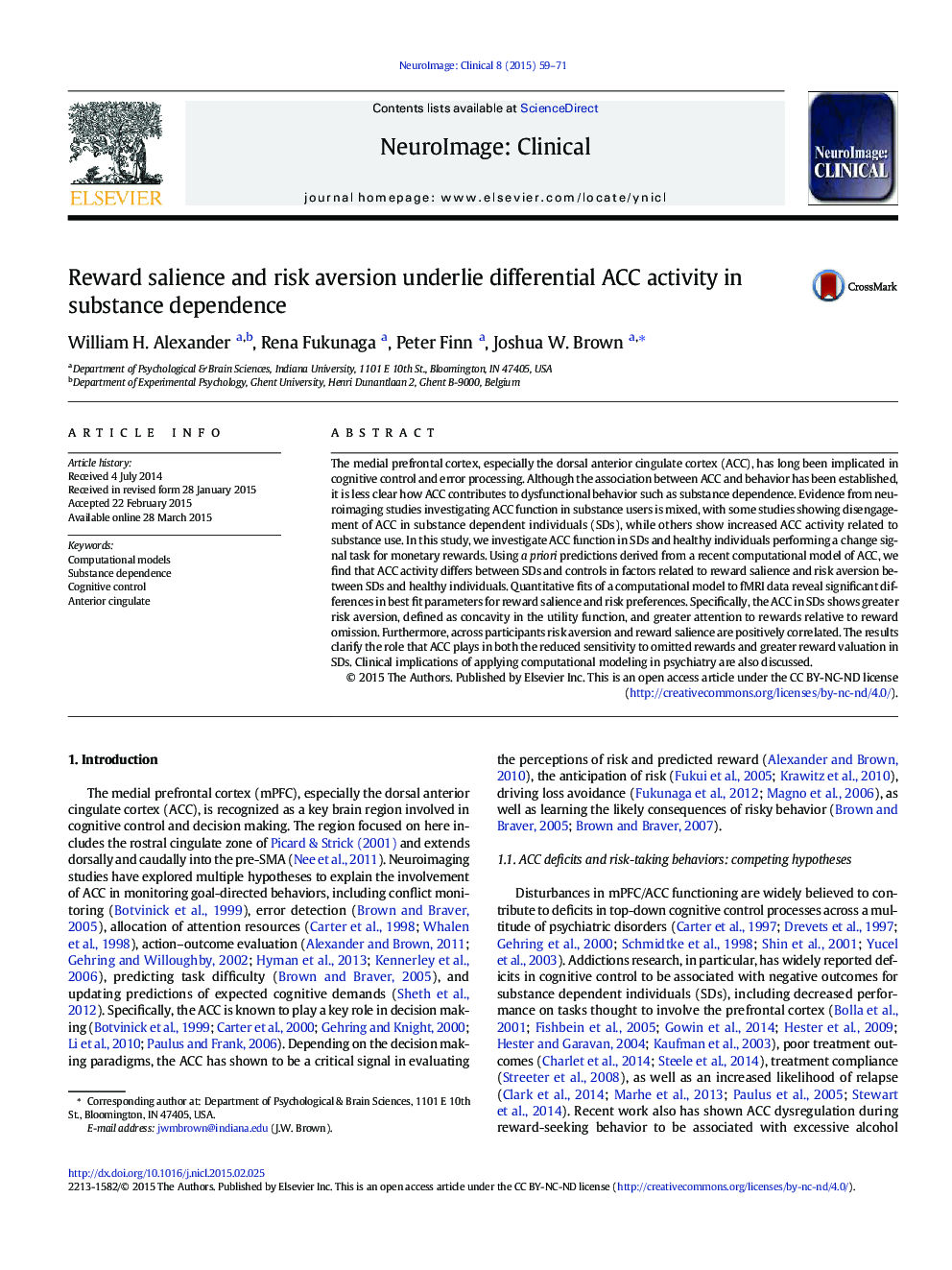| کد مقاله | کد نشریه | سال انتشار | مقاله انگلیسی | نسخه تمام متن |
|---|---|---|---|---|
| 3074980 | 1580959 | 2015 | 13 صفحه PDF | دانلود رایگان |

• We test model-based predictions regarding ACC function in substance dependence.
• Increased risk aversion contributes to altered ACC function in substance dependence.
• Contributes to the nascent field of computational psychiatry
The medial prefrontal cortex, especially the dorsal anterior cingulate cortex (ACC), has long been implicated in cognitive control and error processing. Although the association between ACC and behavior has been established, it is less clear how ACC contributes to dysfunctional behavior such as substance dependence. Evidence from neuroimaging studies investigating ACC function in substance users is mixed, with some studies showing disengagement of ACC in substance dependent individuals (SDs), while others show increased ACC activity related to substance use. In this study, we investigate ACC function in SDs and healthy individuals performing a change signal task for monetary rewards. Using a priori predictions derived from a recent computational model of ACC, we find that ACC activity differs between SDs and controls in factors related to reward salience and risk aversion between SDs and healthy individuals. Quantitative fits of a computational model to fMRI data reveal significant differences in best fit parameters for reward salience and risk preferences. Specifically, the ACC in SDs shows greater risk aversion, defined as concavity in the utility function, and greater attention to rewards relative to reward omission. Furthermore, across participants risk aversion and reward salience are positively correlated. The results clarify the role that ACC plays in both the reduced sensitivity to omitted rewards and greater reward valuation in SDs. Clinical implications of applying computational modeling in psychiatry are also discussed.
Journal: NeuroImage: Clinical - Volume 8, 2015, Pages 59–71